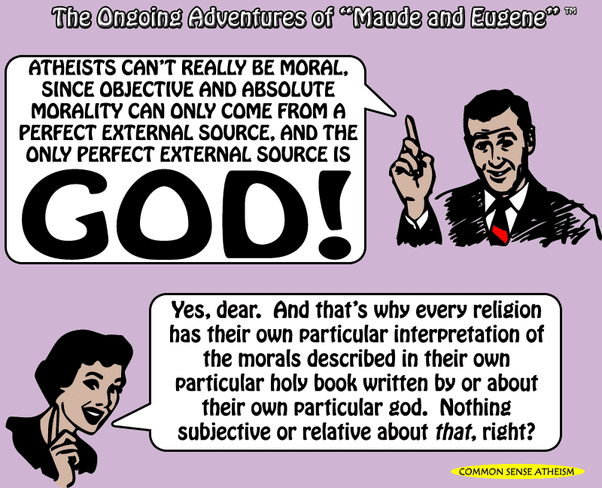
Today, Constance, an Independent Fundamentalist Baptist (IFB) Christian, left the following comment on a 2020 post about serial adulterer David Hyles’ latest sex scandal:
Hello, what God forgives of the past, and looks to what a man is in the present. I have enjoyed Dr. Jack Hyles sermon, “Being Thirsty.” It would be great to hear today, preachers like him. I think he died. That was from the CD collection of “Fundamental Voices.”
Over the past thirteen years, I have received numerous comments and emails from IFB Christians preaching the same perverse gospel of “forgiveness” as Constance does in her comment. In their minds, salvation and subsequent cleansing from sin are transactional — a simple prayer away. After all, the Bible says in 1 John 1:9: If we confess our sins, he is faithful and just to forgive us our sins and to cleanse us from all unrighteousness. All David Hyles, Jack Hyles, Jack Schaap, and every other miscreant needs to do is “confess” their sins — “I messed up Jesus, my bad” — and really, really, really, really mean it, and Jesus, through his magic blood will forgive them of their sins and cleanse them from ALL unrighteousness. By uttering the right words, their slates are instantaneously wiped clean; their sins are remembered by God no more. And if God has forgiven and forgets, so should we.
People not immersed in the practices of the IFB church movement know that this sin-repent-forgiveness process enables depraved, perverted behavior. If all one needs to do is pray-away-the-crime, there’s no motivation to change their ways. Over the twenty-five years I spent pastoring Evangelical churches, I witnessed countless followers of Jesus come to the altar, confess their sins with wailing and gnashing of teeth, and find cleansing from sinful and, at times, criminal behavior. Come Monday or maybe Wednesday, these same people returned as a pig to the mire, committing the same or similar sins, only to find themselves at the church altar again the next Sunday. Wash-rinse-repeat.
While I didn’t lower myself to join the penitent at the mourner’s bench, I did practice 1 John 1:9 every time I preached. It was my custom to say a silent prayer to God before entering the pulpit, asking him to cleanse me from all my sin, both acts of omission and commission. I wanted to be pure, holy, and right with God before I stood in front of my congregation to preach the unsearchable riches of Jesus Christ. No matter what I had done the night before or even that morning, I knew that I had to have a clean sin slate if I expected God to use me to save souls and advance his kingdom.
According to Constance, no “sin” is unforgivable. David Hyles’ alleged crimes and sexual escapades are well known, yet Constance believes that as long as Hyles has said “my bad” he should keep on doing God’s work. Hyles doesn’t believe in restitution, nor does he think he owes anyone an apology. God has forgiven him, and that’s all that matters.
Several years ago, Hyles posted on Facebook:
Some would have us confess our sins endlessly. Instead we should confess them but once and then give thanks for His forgiveness endlessly.
David Hyles believes if he says “my bad” to Jesus, that all is forgiven. No need to make restitution or publicly account for his vile behavior. I talked to God, Hyles thinks, and he said, Hey David, you are my son, I forgive you, end of discussion! Hyles wrongly thinks that his “sin” is between him and God. People such as myself — an atheist to boot — have no right to poke our noses into his sex life — past or present. Ironically, David Hyles supports attempts to legislate private sexual behavior between consenting adults. If Hyles supports government and religious intrusion into the sexual affairs of Americans, shouldn’t his sexual behavior be fair game — especially those acts that were criminal in nature? For Hyles, the blood of Jesus, applied in 1 John 1:9 fashion: if we confess our sins, he [God] is faithful and just to cleanse us from sin and ALL UNRIGHTEOUSNESS, is his get-out-of-jail-free card. Pray, confess, and God wipes his slate clean. A sweet deal, I’d say. One that allows people to commit horrific acts and have them erased by saying a bit of religious mumbo jumbo.
….
It should come as no surprise, then, that the Independent Fundamentalist Baptist (IFB) church movement is rife with sexual abuse problems. I know of one church where a man was caught TWICE having inappropriate sexual relationships with minor boys, yet today he is faithfully serving Jesus in an IFB church. Evidently, IFB men are free to stick their dicks wherever they want, knowing that God will forgive such sins and wipe slates clean. Never mind the fact that these predators often continue to prey on unsuspecting people, no matter how many times their records are washed clean by Jesus.
Constance is a product of Fundamentalist indoctrination, a believer in grace and forgiveness while enabling child abusers, sexual predators, and all-around bad people. She fails to understand that abusers and predators don’t stop until they are caught and made to stop. God might forgive them, but here on planet earth, we have a duty and obligation to hold child molesters, rapists, and sexual predators accountable for their crimes. Further, it is in the best interest of churches to NOT employ pastors who sleep with congregants or psychologically manipulate vulnerable church teenagers so they can have sex with them. These things seem so fucking obvious to me, yet Constance believes that if God has forgiven an errant preacher, so should she. Preach the Word, brother! Stay Thirsty!
Other posts about David Hyles
- UPDATED: Serial Adulterer David Hyles Has Been Restored
- Serial Adulterer David Hyles Receives a Warm Longview Baptist Temple Welcome
- David Hyles Says “My Bad, Jesus”
- Is All Forgiven for David Hyles?
- News Stories About IFB Preachers Jack and David Hyles
- Disgraced IFB Preacher David Hyles Helping “Fallen” Pastors Get Back on Their Horses
- The David Hyles Saga
- Woman’s Civil Lawsuit Alleges IFB Preacher David Hyles Raped Her When She was a Teen
- IFB Preacher David Hyles’ Latest Sex Scandal
Bruce Gerencser, 66, lives in rural Northwest Ohio with his wife of 45 years. He and his wife have six grown children and thirteen grandchildren. Bruce pastored Evangelical churches for twenty-five years in Ohio, Texas, and Michigan. Bruce left the ministry in 2005, and in 2008 he left Christianity. Bruce is now a humanist and an atheist.
Connect with me on social media:
Your comments are welcome and appreciated. All first-time comments are moderated. Please read the commenting rules before commenting.
You can email Bruce via the Contact Form.






